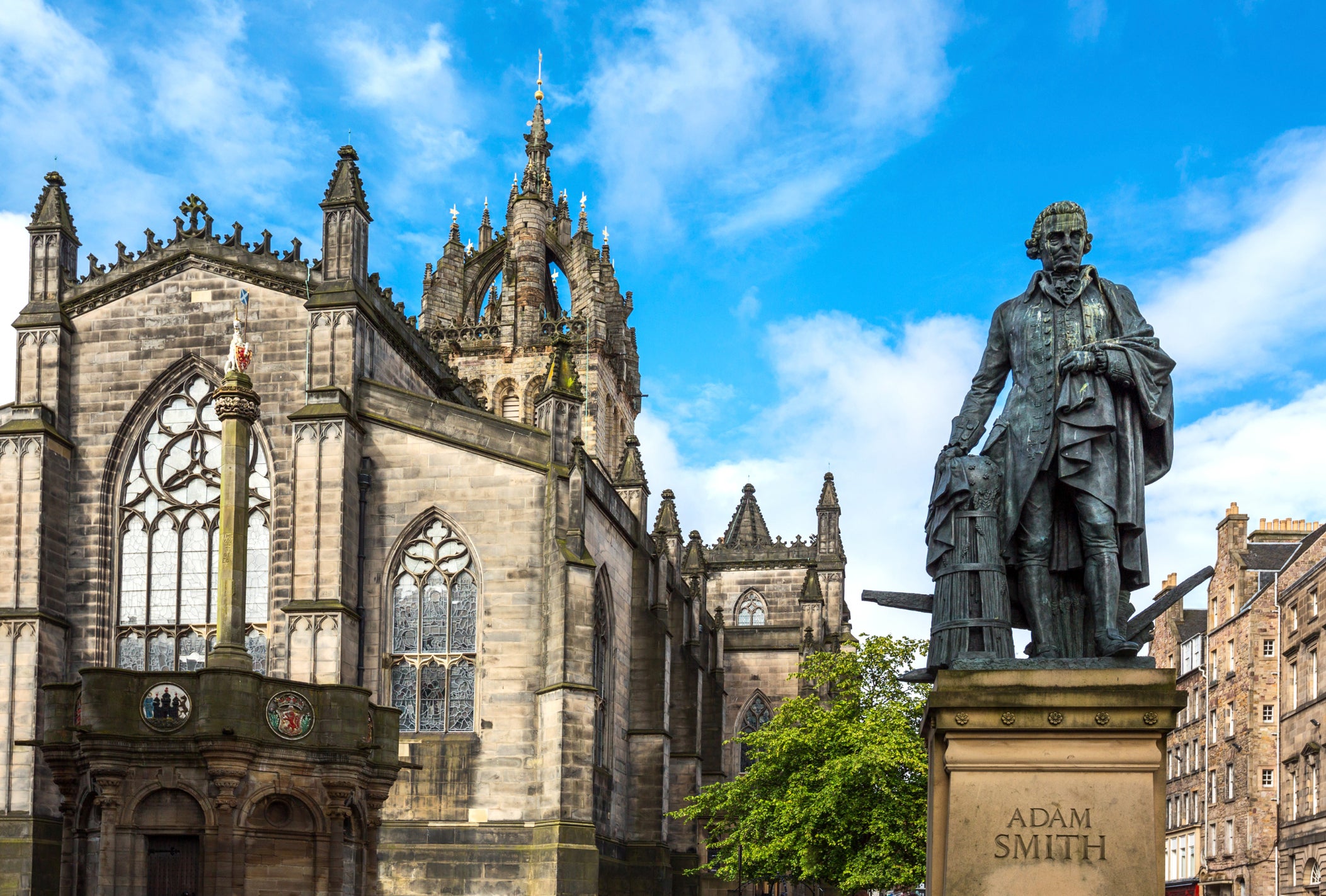Adam Smith’s grave listed in dossier of sites linked to ‘slavery and colonialism’
‘Father of capitalism’ monuments listed as having links to ‘historic racial injustice’

Your support helps us to tell the story
From reproductive rights to climate change to Big Tech, The Independent is on the ground when the story is developing. Whether it's investigating the financials of Elon Musk's pro-Trump PAC or producing our latest documentary, 'The A Word', which shines a light on the American women fighting for reproductive rights, we know how important it is to parse out the facts from the messaging.
At such a critical moment in US history, we need reporters on the ground. Your donation allows us to keep sending journalists to speak to both sides of the story.
The Independent is trusted by Americans across the entire political spectrum. And unlike many other quality news outlets, we choose not to lock Americans out of our reporting and analysis with paywalls. We believe quality journalism should be available to everyone, paid for by those who can afford it.
Your support makes all the difference.Adam Smith’s grave has been included in an Edinburgh City Council dossier of sites linked to “slavery and colonialism”, according to reports.
The 18th-century Scottish philosopher and economist, also known as the “father of capitalism”, was buried in the Canongate Kirkyard on Edinburgh’s Royal Mile in July 1790.
Edinburgh City Council launched a review of the Scottish capital’s links to slavery and colonialism in response to last year’s Black Lives Matter protests, which saw thousands of supporters gathering at Holyrood Park.
The Labour and SNP-led council formed a legacy review group, chaired by Sir Geoff Palmer, to identify statues and street names that commemorate those with close links to slavery in the city.
The group said in November it would “consider all options, including removal of statues”.
Smith’s grave is among the sites listed in the review as having links to “historic racial injustice”, according to a report in The Telegraph on Saturday.
The inclusion was justified with a comment that said he “argued that slavery was ubiquitous and inevitable but that it was not as profitable as free labour”.
Both Smith’s gravestone and his statue on the Royal Mile would now be considered by the council’s Slavery and Colonialism Legacy Review Group, The Telegraph said.
Bute House, the official residence of first minister Nicola Sturgeon, and monuments dedicated to Queen Victoria, Admiral Lord Nelson and Scottish national poet Robert Burns are reportedly also included among the sites for review by the group.
A report on the findings of the review and recommendations is expected in December.
Smith, who featured on the £20 paper banknote, is widely regarded as the founder of modern economics.
He was seen as the first economic thinker to advocate the free market and argued the pursuit of individual self-interest had the effect of advancing the common good – but some later interpreted that as providing a justification for selfishness.

Join our commenting forum
Join thought-provoking conversations, follow other Independent readers and see their replies
Comments